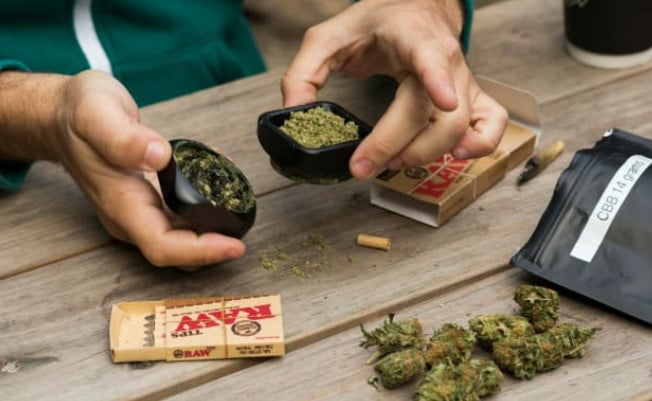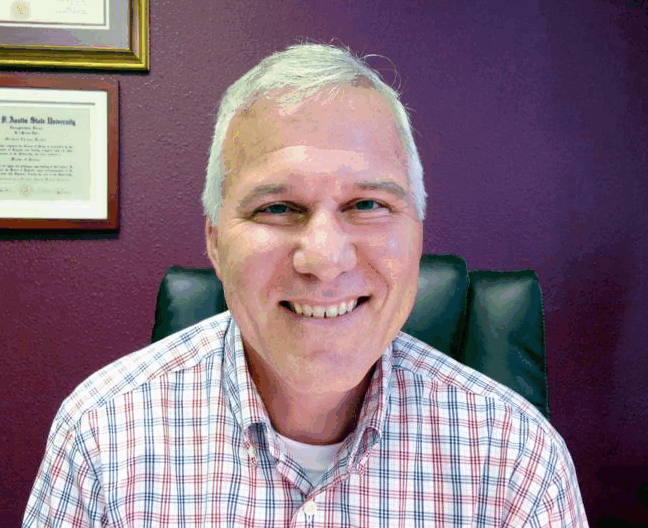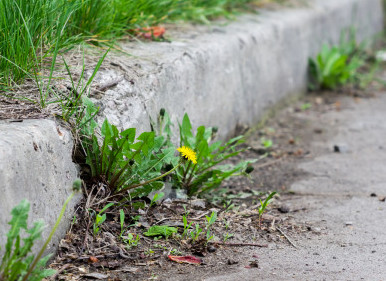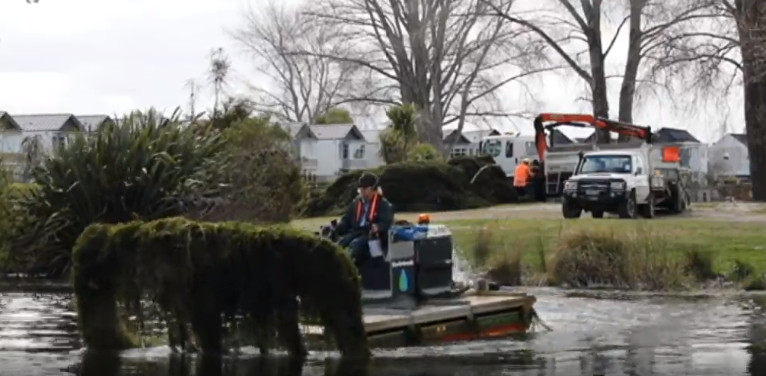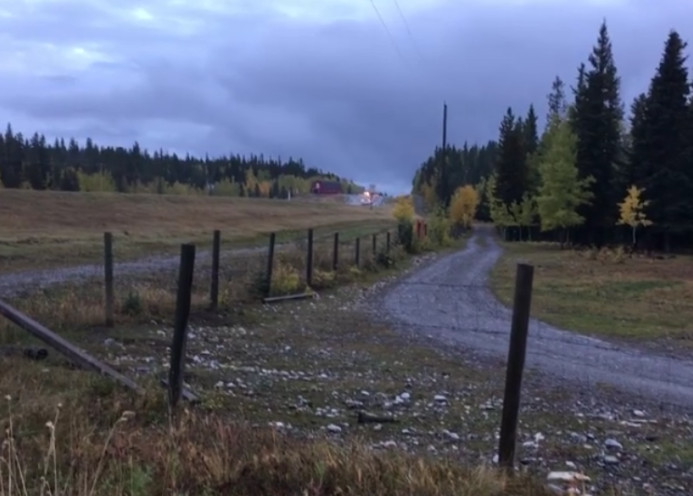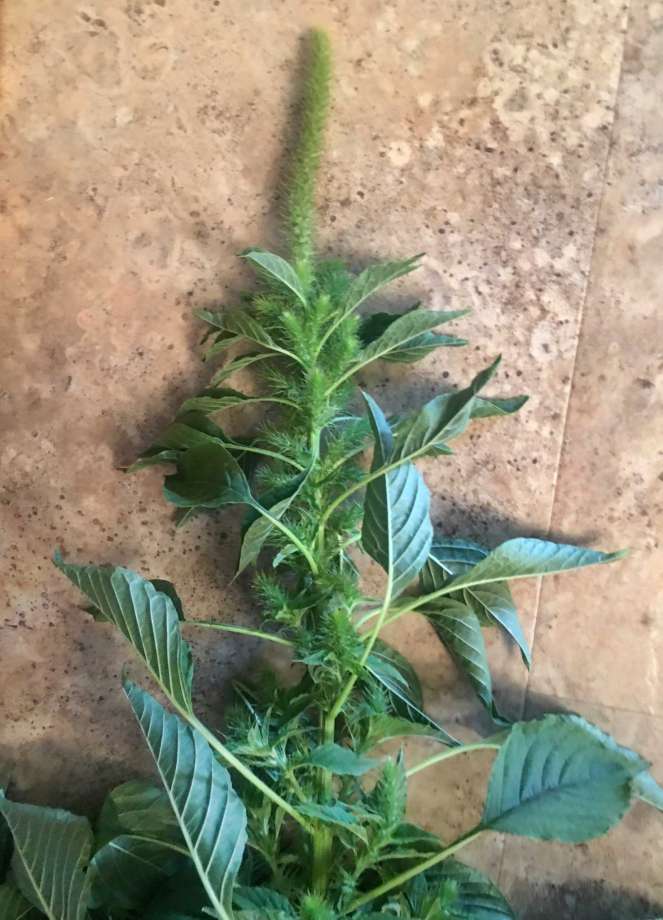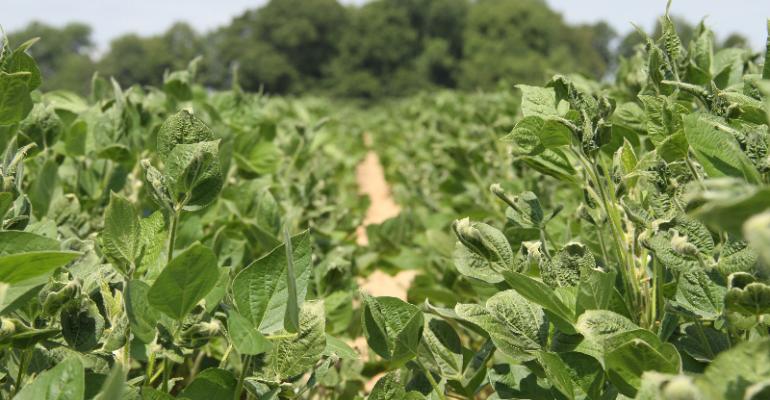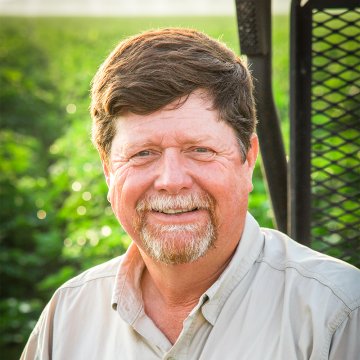Florida betony or Rattlesnake weed is an aggressive weed in the lawn and landscape that if you have dealt with then you know it is one tough weed. Once in the landscape or lawn, Florida betony can spread rapidly and is very difficult to control. Florida betony is native to Florida and over time has made its way into some North Carolina counties.
Florida betony is a perennial that is most noticeable during the late summer to early fall and again in later winter to early spring. This weed typically remains green through the winter by may die back to the ground in very cold winters. Florida betony has square stems with leaves that are opposite, lance shaped, and has toothed edges. The best way to identify Florida betony is to dig up the weed. Florida betony will have white, segmented tubers that resemble a rattlesnake’s rattle; hence this weed’s other common name “Rattlesnake weed.” The tubers of Florida betony contribute to the weed’s invasiveness and rapid spread in the landscape and lawn.
There are some herbicide options available if you have Florida betony in your lawn. Broadleaf herbicides, called 3-way herbicides that contain 2, 4-D +MCPP + dicamba (Timec, Weed-B-Gon, and others) can be used to spot treat in Bermuda and Zoysiagrass. In centipede and St. Augustinegrass, Florida Betony may be controlled with atrazine (Ortho Weed-B-Gon Spot Weed Killer for St. Augustine Lawns, Hi-Yield Atrazine Weed Killer, others). Apply herbicides in the fall to emerged Florida betony and follow with a second application in mid-winter or early spring.
Unfortunately, control in landscape beds or around woody ornamental trees and shrubs will include digging the weed out as completely as possible to reduce further spread. Do use caution when digging out Florida betony that you do not accidently spread it to new areas. One piece of the tuber roots will produce a new plant in a new location if carried through soil and tools. Mulch and landscape fabrics are not usually successful in controlling the growth of this aggressive weed. Glyphosate (Roundup) herbicide can be used to control Florida betony by spot treating where the weed is but use with caution to prevent killing desired plants in the landscape.
With whatever method of control you decide to go with, be aware that a one application will not be enough to stop Florida betony. Florida betony will require persistence in order to control it. It can take several years to get rid of Florida betony in heavily infested areas, so repeated applications will be necessary for a few years.
Recommendations for the use of agricultural chemicals are included in this article as a convenience to the reader. The use of brand names and any mention or listing of commercial products or services in this article does not imply endorsement by North Carolina Cooperative Extension nor discrimination against similar products or services not mentioned. Individuals who use agricultural chemicals are responsible for ensuring that the intended use complies with current regulations and conforms to the product label. Be sure to obtain current information about usage regulations and examine a current product label before applying any chemical.
Credit: goldsborodailynews.com

